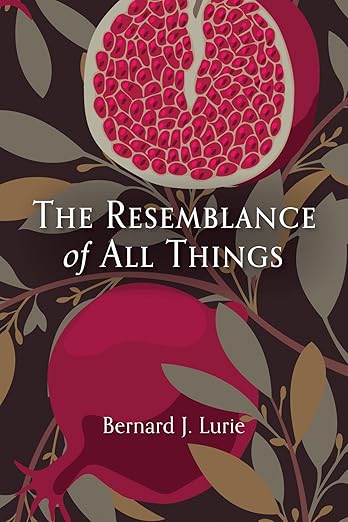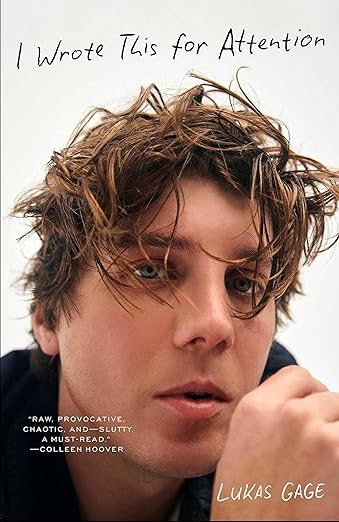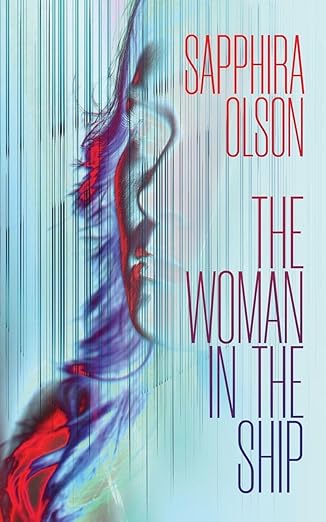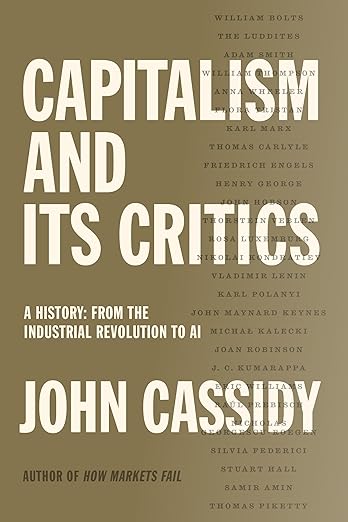 The book is divided into four parts. Each part is prefaced by a single prefatory line indicting that what follows is directed to a different biblical prophet. None of them speak in the poem. The prophets are addressed indirectly, through intermediaries of God, regarding matters about which they prophesied. It does not restate their views. Neither does the poem advocate on behalf of or against any faith.
The book is divided into four parts. Each part is prefaced by a single prefatory line indicting that what follows is directed to a different biblical prophet. None of them speak in the poem. The prophets are addressed indirectly, through intermediaries of God, regarding matters about which they prophesied. It does not restate their views. Neither does the poem advocate on behalf of or against any faith.
A review of I Wrote This for Attention by Lukas Gage
 When Gage talks about his “gnawing, pathological hunger to prove my worth,” he’s at his most compelling precisely because, as the memoir closes, you come to understand the internet is his ribcage. But as with everything internet-coded, he flees the potentially parasocial, the baring himself, for the lark, burned by the internet and approval hunger. By the final line we become him in his post-divorce trip to Iceland, looking up from the grief only to find “the Northern Lights—the one constant in this strange, icy night—were gone.
When Gage talks about his “gnawing, pathological hunger to prove my worth,” he’s at his most compelling precisely because, as the memoir closes, you come to understand the internet is his ribcage. But as with everything internet-coded, he flees the potentially parasocial, the baring himself, for the lark, burned by the internet and approval hunger. By the final line we become him in his post-divorce trip to Iceland, looking up from the grief only to find “the Northern Lights—the one constant in this strange, icy night—were gone.
A review of Exiles in New York City by Philip T. Yanos
 One thing is clear: deep journalistic inquiry, such as Yanos’ Exiles in New York City, sheds much-needed light on a social morass that has been with us far too long. His reportorial zest, coupled with an inspiring sense of humanity and deep inquiry, is present on every page of this eye-opening book. This is a book about how we choose to live now, even when some of our lives are sequestered, shaded from prying eyes behind a meshwork of barbed wire fence.
One thing is clear: deep journalistic inquiry, such as Yanos’ Exiles in New York City, sheds much-needed light on a social morass that has been with us far too long. His reportorial zest, coupled with an inspiring sense of humanity and deep inquiry, is present on every page of this eye-opening book. This is a book about how we choose to live now, even when some of our lives are sequestered, shaded from prying eyes behind a meshwork of barbed wire fence.
A review of The Woman in the Ship by Sapphira Olson
 The Woman in the Ship, by Sapphira Olson, illustrates both of these concepts: mankind’s ceaseless curiosity for what is beyond the night sky, and the awesome toll attendant to the manufacture of greater and greater AI. It is a story of love and loss, retro and future, hope and fear, and science and humanity. As well, it is steeped in robust feminism, both in terms of illustrating struggle and oppression, and triumph and overcoming.
The Woman in the Ship, by Sapphira Olson, illustrates both of these concepts: mankind’s ceaseless curiosity for what is beyond the night sky, and the awesome toll attendant to the manufacture of greater and greater AI. It is a story of love and loss, retro and future, hope and fear, and science and humanity. As well, it is steeped in robust feminism, both in terms of illustrating struggle and oppression, and triumph and overcoming.
A review of Sea, Poison by Caren Beilin
 Both despite and because of the sweeping, sincere critiques of medical and capitalist corruption, Beilin buoys her sea with tongue-in-cheek wit as well as humor, a hallmark of Oulipian writing. Every joke and turn of phrase maintains the novel’s brisk pace, an asset most well-executed when Cumin’s post-surgery mind sputters out choppy fragments.
Both despite and because of the sweeping, sincere critiques of medical and capitalist corruption, Beilin buoys her sea with tongue-in-cheek wit as well as humor, a hallmark of Oulipian writing. Every joke and turn of phrase maintains the novel’s brisk pace, an asset most well-executed when Cumin’s post-surgery mind sputters out choppy fragments.
A review of Level Watch by Mary Ardery
 The speaker has a direct line that runs from her heart to the hearts of the women she is striving to help. At times this line becomes clogged, and there is a break, perhaps because of the strain of her own unresolved conflicts with drugs and alcohol, (Not uncommon in the field) but never to the detriment of the work. In fact, her brilliant honesty and self-doubt drew me in as a reader, leaving me to draw my own conclusions about how she was changed as a person as a result of this lived experience, which is what all good poetry invites us to do.
The speaker has a direct line that runs from her heart to the hearts of the women she is striving to help. At times this line becomes clogged, and there is a break, perhaps because of the strain of her own unresolved conflicts with drugs and alcohol, (Not uncommon in the field) but never to the detriment of the work. In fact, her brilliant honesty and self-doubt drew me in as a reader, leaving me to draw my own conclusions about how she was changed as a person as a result of this lived experience, which is what all good poetry invites us to do.
A review of Capitalism and its Critics by John Cassidy
 Should Cassidy’s book be summarized to make it more digestible to a public that likes a quick read? No. Cassidy’s book is a reader-friendly book that takes readers on a journey from the Levellers and Diggers of the English Civil War, to Trump’s America. By selecting an historical figure as the focus of each chapter, he gives readers a human story and makes the past come alive.
Should Cassidy’s book be summarized to make it more digestible to a public that likes a quick read? No. Cassidy’s book is a reader-friendly book that takes readers on a journey from the Levellers and Diggers of the English Civil War, to Trump’s America. By selecting an historical figure as the focus of each chapter, he gives readers a human story and makes the past come alive.
Alexis Rhone Fancher’s Poetry
 The sequence of Rhone Fancher’s poetry is particularly inventive, offering a layered resonance that readers may find both empathetic and revealing. While its earlier stanzas carefully construct the scene, it is the ending that delivers the greatest impact — a twist shaped by irony, by the disparity of experience, and by an emotional and intellectual complexity that lingers long after the last line.
The sequence of Rhone Fancher’s poetry is particularly inventive, offering a layered resonance that readers may find both empathetic and revealing. While its earlier stanzas carefully construct the scene, it is the ending that delivers the greatest impact — a twist shaped by irony, by the disparity of experience, and by an emotional and intellectual complexity that lingers long after the last line.
An interview with Ekta Bajaj
 The author of Let The Fish Fly talks about her new novel and its themes, the power of following the inner voice, how writing this novel changed her, her use of The Upanishads and other ancient texts, the masks women wear, Kali moments, the sacred amidst the everyday, and lots more.
The author of Let The Fish Fly talks about her new novel and its themes, the power of following the inner voice, how writing this novel changed her, her use of The Upanishads and other ancient texts, the masks women wear, Kali moments, the sacred amidst the everyday, and lots more.
A review of Ring the Bells by Colleen Keating
 This is a delightful collection – often thought provoking, sometimes poignant and always engaging. Keating understands the times in which we live. As she says in her introduction, it is: ‘a broken world with personal and collective emotions, pain of war and human travail that can bring us to our knees’. But gloom and desperation aren’t options for this fine lyric poet.
This is a delightful collection – often thought provoking, sometimes poignant and always engaging. Keating understands the times in which we live. As she says in her introduction, it is: ‘a broken world with personal and collective emotions, pain of war and human travail that can bring us to our knees’. But gloom and desperation aren’t options for this fine lyric poet.